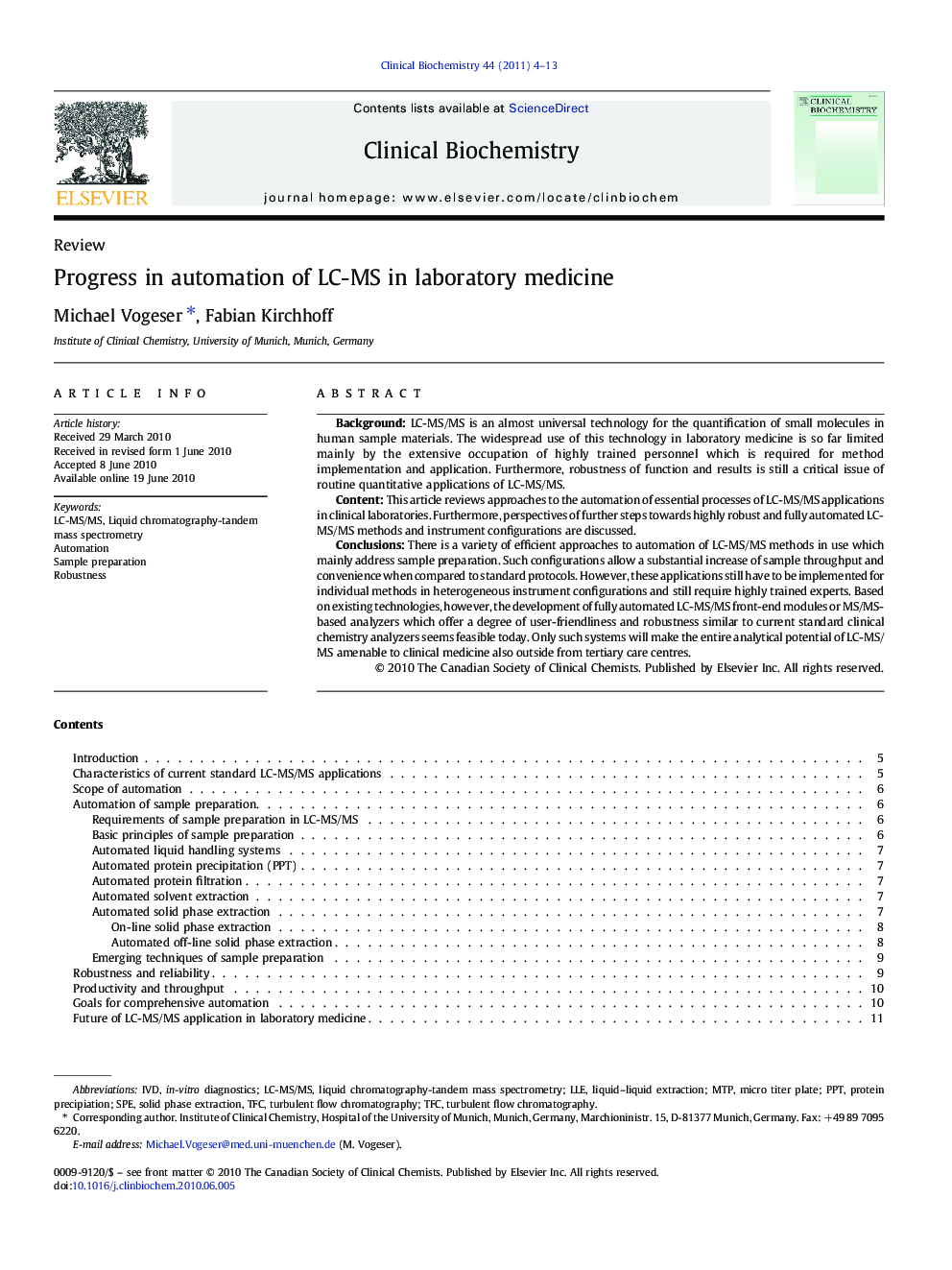| Article ID | Journal | Published Year | Pages | File Type |
|---|---|---|---|---|
| 1969337 | Clinical Biochemistry | 2011 | 10 Pages |
BackgroundLC-MS/MS is an almost universal technology for the quantification of small molecules in human sample materials. The widespread use of this technology in laboratory medicine is so far limited mainly by the extensive occupation of highly trained personnel which is required for method implementation and application. Furthermore, robustness of function and results is still a critical issue of routine quantitative applications of LC-MS/MS.ContentThis article reviews approaches to the automation of essential processes of LC-MS/MS applications in clinical laboratories. Furthermore, perspectives of further steps towards highly robust and fully automated LC-MS/MS methods and instrument configurations are discussed.ConclusionsThere is a variety of efficient approaches to automation of LC-MS/MS methods in use which mainly address sample preparation. Such configurations allow a substantial increase of sample throughput and convenience when compared to standard protocols. However, these applications still have to be implemented for individual methods in heterogeneous instrument configurations and still require highly trained experts. Based on existing technologies, however, the development of fully automated LC-MS/MS front-end modules or MS/MS-based analyzers which offer a degree of user-friendliness and robustness similar to current standard clinical chemistry analyzers seems feasible today. Only such systems will make the entire analytical potential of LC-MS/MS amenable to clinical medicine also outside from tertiary care centres.
